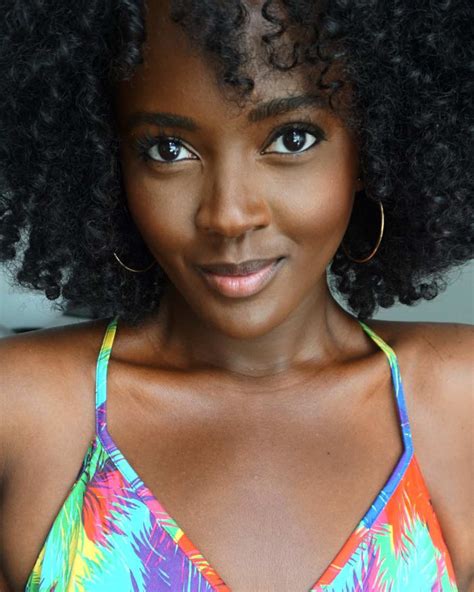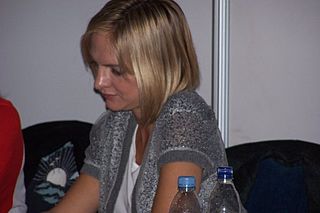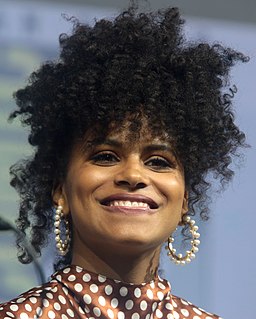A Quote by Dennis Quaid
I grew up in Houston, and I remember we had separate drinking fountains, and black people sat in the balcony of the theater... We had an African-American housekeeper growing up who was really like my second mother. I thought it was silly - hatred just because of the color of somebody's skin.
Related Quotes
Growing up, I had really bad skin. I had a skin disorder. Yes, I did. And my mother went to great lengths to try to find something to remedy it. I remember she took a trip to Madagascar and came back with all these alternative, medicinal herbs and stuff. They didn't smell so good, but I think they worked some magic.
One of the facets of growing up the way I did, I never had the experience of being solely in the black community. Even my family, my mother is what they call Creole, so she's part French, part black, and grew up in Louisiana. It's a very specific kind of blackness that is different than what is traditionally thought of as the black community and black culture. So, I never felt a part of whatever that was.
I would say I'm black because my parents said I'm black. I'm black because my mother's black. I'm black because I grew up in a family of all black people. I knew I was black because I grew up in an all-white neighborhood. And my parents, as part of their protective mechanisms that they were going to give to us, made it very clear what we were.
I remember crying all the time. My major thing growing up was I couldn't fit in. Because I was from everywhere, I didn't have no buddies that I grew up with...Every time I had to go to a new apartment, I had to reinvent myself, myself. People think just because you born in the ghetto you gonna fit in. A little twist in your life and you don't fit in no matter what. If they push you out of the hood and the White people's world, that's criminal...Hell, I felt like my could be destroyed at any moment.
I think people assume that because I talk the way that I talk that I grew up with money, and then I've had to say, 'No, I grew up poor.' And then I was like, 'Why do I have to play this game where the only black experience that's authentic is the one where you grew up in poverty?' I mean, it's ridiculous.
When I think back, I felt like I had the life that a lot of white American kids grew up with in the suburbs in the States. I started noticing, as Apartheid's grip weakened, that we had more and more black kids at school; I had more and more black friends. But I never really saw a separation between myself and the black kids at school.
The potential significance of Black feminist thought goes far beyond demonstrating that African-American women can be theorists. Like Black feminist practice, which it reflects and which it seeks to foster, Black feminist thought can create a collective identity among African-American women about the dimensions of a Black women's standpoint. Through the process of rearticulating, Black feminist thought can offer African-American women a different view of ourselves and our worlds




































